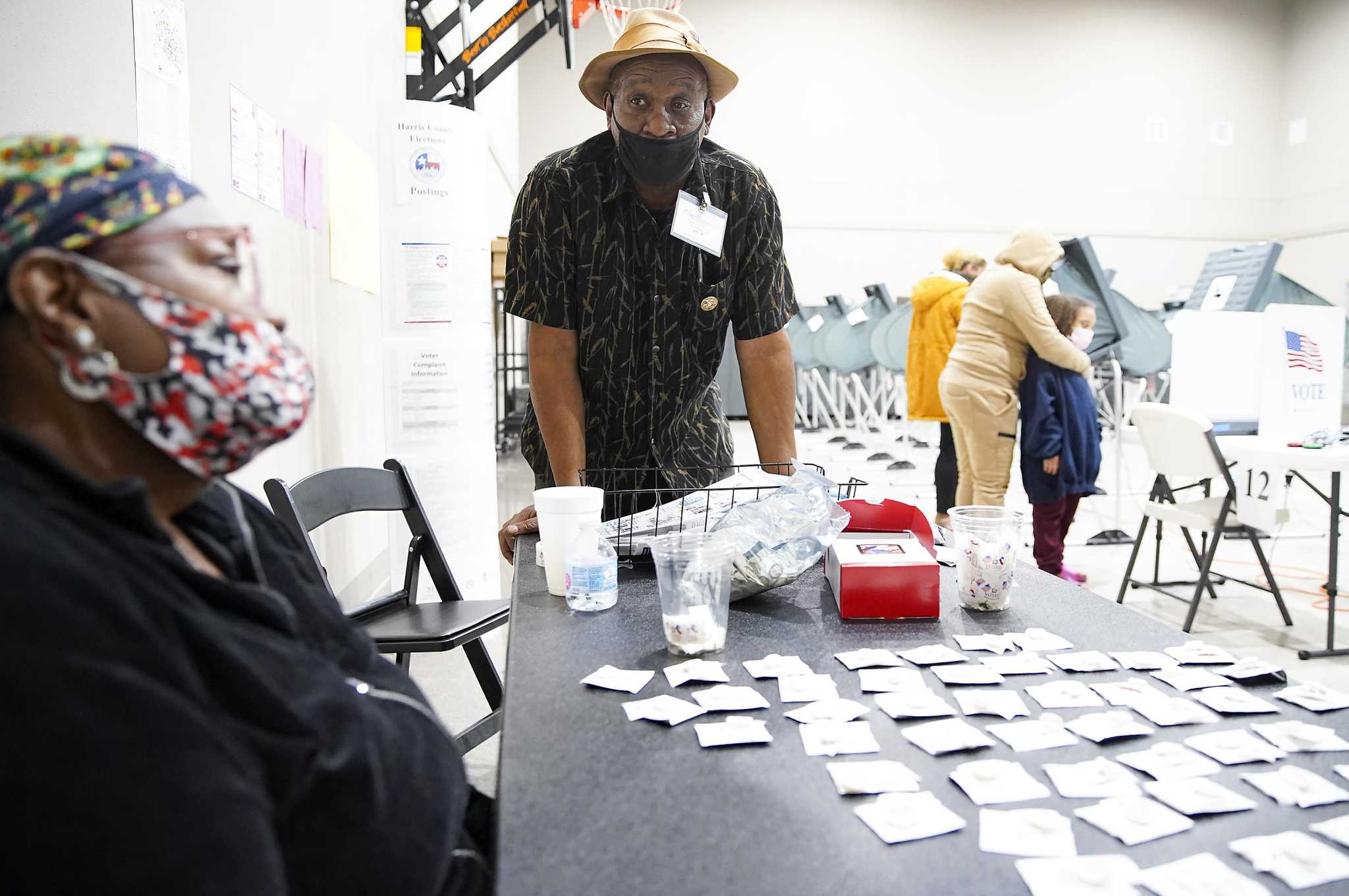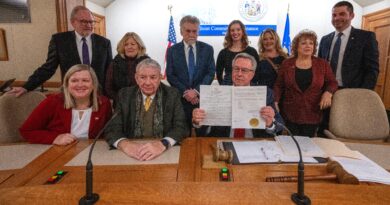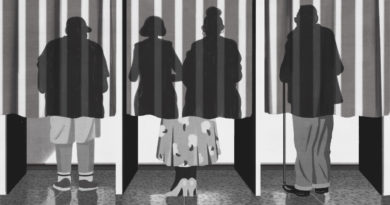Editorial: The Big Lie — If voter fraud is an epidemic, why can’t Texas find it?

We dare you. Name a state official anywhere in this nation who yearns to snuff out voter fraud more than the steadfast soldiers of election security here in Texas.
Gov. Greg Abbott, in his feverish clairvoyance, declared voter fraud an “epidemic” way back in 2005, when he was still attorney general, and launched a unit to root it out. His successor, Ken Paxton, beefed up his election integrity unit last year, with prosecutors toiling more than 22,000 hours on the taxpayers’ dime hunting for polling improprieties. In November, Lt. Gov. Dan Patrick topped them all by dangling a $1 million bounty, payable from his own campaign account, to anyone who came forward with information leading to a voter fraud conviction.
So, if voter fraud is the scourge of our democracy, if it’scapable of stealing a presidential election, as some claim, if it’s widespread enough to qualify for “emergency” status in the state Legislature to ratchet up voting restrictions, then surely, the proof of its magnitude lies in Texas.
Indeed it does. After 15 years of looking for election fraud among the 94 million votes cast in Texas elections since 2005, the Texas Attorney General’s office has dutifully prosecuted all of 155 people. Add to that 19 cases cataloged by the conservative Heritage Foundation, which include federal and county prosecutions, and you get a grand total of 174.
That’s not a typo. It’s not 174,000 or 17,400 or even 1,740.
It’s 174 little ol’ Texas souls.
Together, they represent .000185 percent of the total votes cast — or 1 in 540,000 voters. Statistically, voters are more likely to get struck by lightning than to be prosecuted for voter fraud.
And yet, 174 isn’t nothing. If even one of these individuals perpetrated wide-scale fraud that robbed other Texans of their electoral voice or stole a major election or even resulted in a hefty prison sentence, that might provide a whiff of excuse for the zealous pursuit of fraudulent voters.
Alas, most crimes were so minor that only 33 of the 174 perpetrators went to jail, most for less than a year. An analysis of media accounts and the attorney general’s prosecution records obtained by this editorial board through the Texas Public Information Act shows that most cases ended with plea agreements — pre-trial diversion deals or probation. Of the 33 people who were sentenced to any jail time, none were the criminal masterminds conjured up to instill fear in the hearts of freedom-loving Americans.
Some are felons who were not yet eligible to vote again, a few were small-town politicians falsely registering voters, others filled out another person’s absentee ballot. Only five cases — yes, five out of 94 million — involved voter impersonation at the polls, that near-mythic species of voter fraud that launched Texas’ epic battle for a voter ID law.
The Big Lie
An ongoing editorial series about Texas’ obsessive pursuit of voter fraud.
Today:
Voter fraud is exceedingly rare, despite fevered attempts to discover it
Sunday:
The overzealous pursuit of fraud upends lives, even for a mistake
Monday:
Texas has used voter fraud as a pretext for voter suppression for more than a century
Tuesday:
The Republican Party’s obsession with voter fraud dates from Al Gore’s popular vote victory in 2000
The harshest sentence, eight years, was handed down in 2017 to Rosa Maria Ortega, a legal resident from Mexico who said she did not know she was ineligible to vote. She did so twice, both times for Republicans.
So, what of the “epidemic” Abbott declared in 2005? A year later, he had rooted out about a dozen people, mostly Black and Latino seniors, accused of assisting others in casting their absentee ballots — a practice that had been largely allowed until 2004.
And what of Paxton’s beefy voter fraud unit and its 22,000 hours, nearly double the time logged on such cases two years earlier? It resolved only 18 minor cases in 2020, all of them Harris County residents who gave false addresses on their voter registration forms.
And what of Patrick’s $1 million bounty? In a bit of interstate theatrics, Pennsylvania Lt. Gov. John Fetterman has called dibs on the money for his state, since he reported several Trump supporters in Pennsylvania who have been charged in voter fraud schemes. Patrick hasn’t been amused, telling reporters who inquired about the situation recently “don’t ask me stupid questions.”
Stupid questions really aren’t the problem, though. It’s the stupid answers that are so vexing — none more than the shady sums supplied in the topsy-turvy world of voter fraud mathematics.
Take 531. That’s the number Paxton’s office shamelessly touted up until two weeks ago on its website as the tally of “successfully prosecuted election fraud offenses” since 2004, conveniently leaving out the fact that in truth only 155 people had been charged, often with a stack of offenses stemming from a single incident.
Officials also had to correct the number of pending cases they reported to lawmakers after initially claiming there were more than 500 — most of them filed within the past year. After documents obtained by the ACLU of Texas showed a discrepancy, the AG’s office had to reflect reality and clarified there were 43 pending cases involving 510 charges.
We can understand why Texas’ top Republicans want to hide that reality, and the true picture of voter fraud in Texas. It isn’t alarming. It isn’t scary. It doesn’t foment the kind of fear and mistrust in the electoral system that Republicans need to push through onerous voting requirements that disproportionately target minorities, who tend to vote Democratic.
Some more reality: The prosecution of voter fraud was a top priority for the George W. Bush presidential administration, which tasked the U.S. Department of Justice with investigating and pursuing any allegations. As reported by the New York Times in 2007, after a concerted five-year effort, only 120 people had been charged, resulting in 86 convictions.
Former President Donald Trump, who fancifully alleged he would have won the popular vote in 2016 if millions of undocumented immigrants hadn’t voted, launched a voter fraud commission in 2017 to investigate but the group disbanded in less than a year, finding no evidence of widespread fraud.
The Heritage Foundation database of voter fraud cases nationwide includes 801 criminal convictions since 2000 with 80 defendants going through a diversion program. That’s 881 cases out of more than 392 million votes cast in that same period in presidential elections alone.
Of course, the Heritage database does include four Texas cases in the past 20 years where elections were actually overturned, a reminder that valid prosecutions of real voter fraud are important. In a 2014 case, three people went to prison after voting in a referendum in the Woodlands Road Utility District when they didn’t live there. In three other cases, all in 2018, a City of Mission mayoral runoff was voided after the challenger was found to have bribed voters and tampered with ballots, a Kleberg County justice of the peace election was overturned after seven relatives of the longtime office holder who didn’t live in the precinct voted and a Kaufman County Court GOP primary was invalidated after a “vote harvester” was found to have submitted illegal mail-in ballots.
No one disputes that election security is critical. Fraud at the ballot box is a crime. But an honest, clear-eyed look at the numbers in Texas shows what study after study has found: voter fraud is exceedingly rare.
Even the conservative Fifth Circuit Court of Appeals deemed voter fraud an “almost nonexistent problem,” pondering aloud in a 2016 opinion on Texas’ voter ID bill why busy lawmakers in such a vast state would devote so much time to an issue of microscopic magnitude.
The reason is clear: politics. The GOP has pursued an agenda of voter suppression using the threat of fraud as cover, even as real attempts to swing our elections — through disinformation by Russia, for example — are discounted as political attacks.
Even if you believe that a single instance of voter fraud is one too many, that 174 cases in 15 years is all the evidence you need to back more voting restrictions in Texas, it’s a false choice that Republicans are selling. Making it harder each legislative session to vote actually undercuts election security, sowing distrust in our system and in each other.
Republicans won’t give up this fight — they can’t. It’s the only means of survival for a party that has refused to open its doors to new voters and so has resolved to lock them out instead.
That’s why it’s on us, every Texan who knows the truth, to shout it, share it, to stamp out Republicans’ big lie of voter fraud. Every time you hear our leaders declare it an “epidemic” or a legislative “emergency” or a “steal” that must be stopped, ask them: where are the numbers?
They know very well. It isn’t Texas voters trying to pull off massive fraud. It’s our leaders.
*** This article has been archived for your research. The original version from Houston Chronicle can be found here ***


